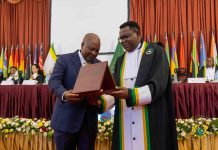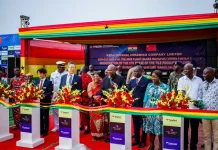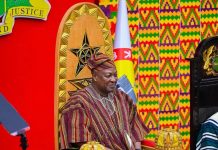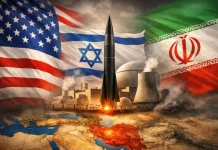Author: Nana Kwaku Boat
The recent viral video in which John Dramani Mahama, former President of Ghana and leader of the National Democratic Congress (NDC), makes contentious admissions of depleting resources and selling out Ghana has reignited debates about his suitability to lead Ghana again.
See video here:
This critique delves into the implications of his leadership style, track record, and the overarching challenges tied to NDC governance, arguing why Ghana should not return to Mahama’s stewardship.
Economic Mismanagement Under Mahama
During Mahama’s presidency (2012–2016), Ghana’s economy suffered from significant challenges.
The country faced high inflation, unsustainable debt levels, and a deteriorating exchange rate.
Public debt ballooned, with the debt-to-GDP ratio increasing from 48% in 2012 to over 73% by the end of his term.
The economic mismanagement culminated in Ghana seeking a bailout from the International Monetary Fund (IMF) in 2015, which came with stringent conditions.
This eroded investor confidence and exacerbated hardships for ordinary Ghanaians, as austerity measures included wage freezes and cuts to essential public spending. Mahama’s inability to stabilize the economy raises serious concerns about his capacity to address Ghana’s current economic challenges.
Corruption and Cronyism
Mahama’s administration was mired in numerous allegations of corruption. High-profile scandals, such as the GYEEDA (Ghana Youth Employment and Entrepreneurial Development Agency) and SADA (Savannah Accelerated Development Authority) mismanagement cases, highlighted a lack of accountability and transparency.
Billions of cedis meant for developmental projects were either squandered or unaccounted for.
These scandals not only deprived Ghanaians of much-needed infrastructure and services but also undermined public trust in governance.
Critics argue that returning Mahama to power would likely embolden similar practices, setting back Ghana’s development agenda.
Poor Infrastructure Execution Despite Heavy Borrowing
While Mahama’s government touted its investment in infrastructure, many of these projects were riddled with inefficiencies, inflated costs, and incomplete execution.
For instance, the much-publicized Circle Interchange project in Accra, though completed, became a symbol of misplaced priorities, with critics arguing that funds could have been better utilized to address pressing needs such as education, healthcare, and job creation.
The emphasis on flashy, high-cost projects often came at the expense of broader developmental goals, leaving many regions underserved despite the significant borrowing during his tenure.
Admission of Selling Ghana’s Assets
The viral video in which Mahama allegedly admits to “selling Ghana” is emblematic of broader concerns about the NDC’s governance philosophy.
The statement, whether metaphorical or literal, reflects a tendency to prioritize short-term gains over long-term national interest.
Such an approach risks compromising Ghana’s sovereignty and future prospects, particularly in critical sectors such as energy, natural resources, and public services.
Weak Leadership and Lack of Vision
Leadership requires decisiveness, innovation, and a clear vision for the future. Mahama’s tenure was marked by a reactive, rather than proactive, approach to governance.
From the dumsor (persistent power outages) crisis to the mishandling of economic policy, his administration struggled to inspire confidence or chart a sustainable path forward for Ghana.
In contrast, Ghanaians today need a leader capable of addressing pressing economic issues, fostering unity, and leveraging the country’s abundant resources to ensure inclusive development.
Conclusion
The prospect of John Mahama returning to power raises legitimate concerns about Ghana’s economic stability, governance integrity, and developmental trajectory. The NDC’s track record under his leadership suggests a high likelihood of repeated mismanagement and corruption.
As Ghana seeks to navigate complex global challenges and rebuild its economy, it cannot afford to regress under a leadership style that has proven detrimental in the past.
For these reasons, voters must critically evaluate Mahama’s candidacy and consider the broader implications of his return to power.
Ghana deserves leadership that prioritizes accountability, innovation, and the well-being of its citizens above all else.





































